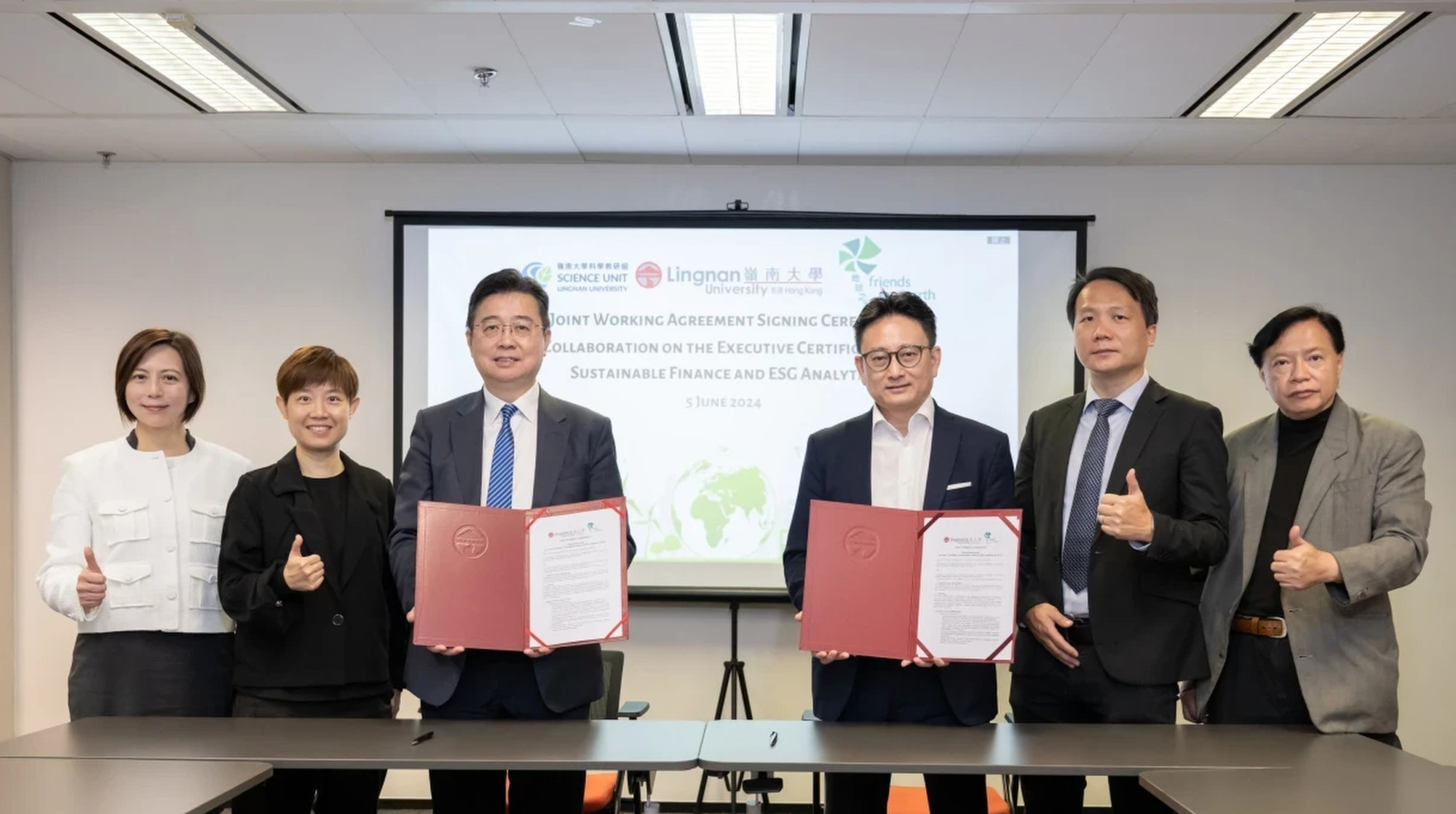A Hong Kong university and a climate group have joined hands to train environmental, social and governance (ESG) practitioners so that they can integrate big data analysis in financial decision-making as corporations scramble to meet growing climate disclosure requirements.
The executive certificate in sustainable finance and ESG analytics, launched by the science unit of Hong Kong-based Lingnan University and Friends of the Earth, aims to provide a combination of sustainability content and artificial intelligence (AI) data analytics skills to bridge the green skills gap across industries, said Serena Mak, board governor and honorary secretary at Friends of the Earth (HK) in an interview.
“The amount and complexity of ESG data that needs to be collected and analysed is substantially increasing,” said Mak. “This programme equips participants with the knowledge and tools to effectively integrate ESG factors into their decision-making processes.
“The recent enhancements to climate-related disclosures by the Hong Kong stock exchange, as well as the global push for more comprehensive non-financial data assurance services, have created a significant green skills gap that this programme aims to address.”

“This will help investors and institutions incorporate smart ESG principles into their decision-making, and promote sustainable development, inclusive growth, and carbon neutrality with the aid of data and technology,” said Paulina Wong, head of the science unit at Lingnan University.
The programme curriculum will include topics such as ESG trends and development, ESG integration, reporting, the carbon market, investment strategy in ESG, and data-driven ESG analysis.
The course assessment combines multiple-choice questions and case studies, to equip students with ESG analysis skills and knowledge, alongside proficiency in applying AI and big data techniques.
“By integrating data science with our whole-person education approach, we foster interdisciplinary collaboration to tackle some of the most pressing issues in the industry,” said Lau Chi-pang, associate vice-president of institutional advancement and external affairs of Lingnan University.
The programme also includes lectures by instructors from the finance and business sectors, and aims to develop students’ understanding of the evolving requirements of capital markets regarding ESG and sustainable finance.
“This ensures that participants develop a strong foundation in the use of contemporary data analytics approaches to support green financing and ESG analysis, enabling them to effectively integrate ESG factors into their decision-making,” said Friends of the Earth’s Mak.
After completing the programme, applicants can apply for a subsidy of up to 80 per cent of their fees, while full-time student applicants can apply for up to 100 per cent of theirs, subject to a ceiling of HK$10,000.
The Hong Kong government has set aside HK$200 million for subsidies to support the training of market practitioners and related professionals, as well as students and graduates of relevant disciplines, helping them obtain the relevant professional qualifications in sustainable finance.
“By equipping professionals with the knowledge and skills needed to navigate the complex ESG landscape, we empower them to drive positive change and create a greener future for all,” said Plato Yip, chairperson of Friends of the Earth (HK).

